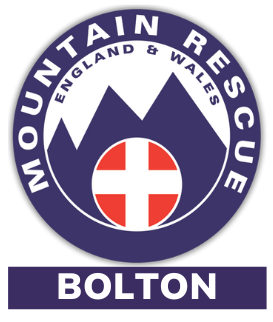Bolton Mountain Rescue Team
The chances are you will never need our services. However, since 1968, a great many have. Our callouts are diverse. For example, we help walkers, runners, bikers, climbers and even dogs that have found themselves in a precarious position. We also search for members of the public who are missing outside of urban areas, particularly those classed as vulnerable by the police.
It costs around £60,000 per year to run the team. Securing this amount of money each year is a constant challenge. We rely on the generosity of the public and other organisations who provide us with donations. Visit the donations page to learn more about how you can help raise money for the team.
Latest News
On Call 24 Hours
Search & Rescue
Event Safety Cover
In case of an emergency, DIAL 999, ask for ‘Police’ then ‘Mountain Rescue’
Give all your prepared details of the incident and ‘STAY WHERE YOU ARE’ until contacted by the rescue team.
If you have to make a further 999 call, follow this procedure in full again.


